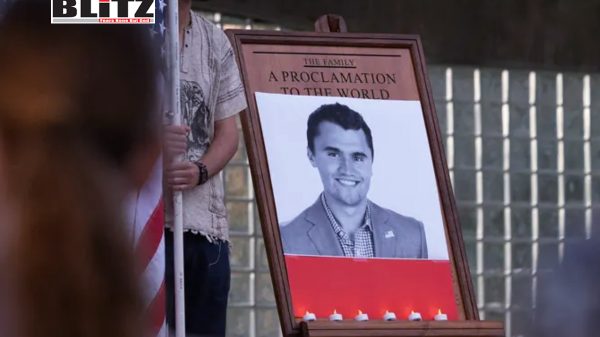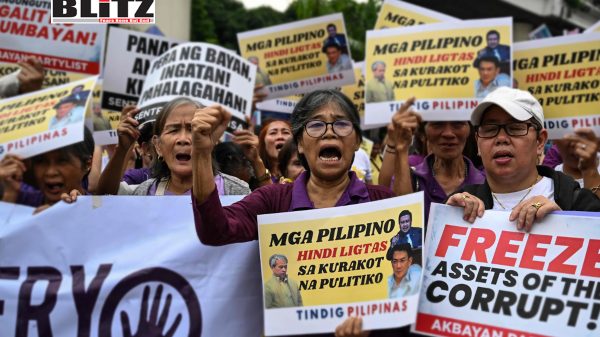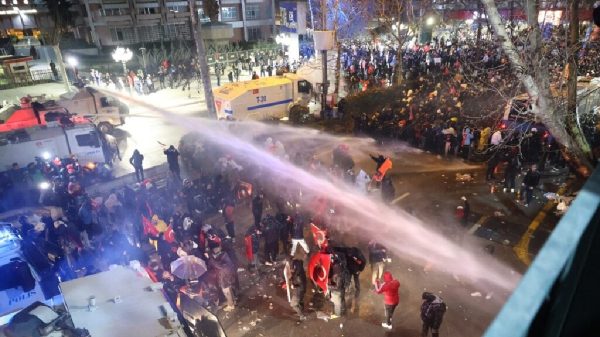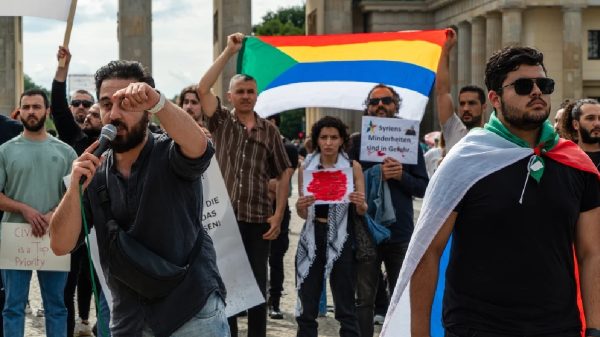America at a crossroads after Charlie Kirk assassination and rising political violence
- Update Time : Wednesday, September 24, 2025

The assassination of conservative activist Charlie Kirk at Utah Valley University this month was not only a shocking act of violence but also a watershed moment for American democracy. In a nation already divided by cultural, ideological, and political battles, the killing of a nationally recognized figure in front of thousands of witnesses has forced the United States to confront a stark reality: political violence has once again become a defining feature of its public life.
This tragedy is about more than the death of a 31-year-old activist who built his reputation mobilizing young conservatives on college campuses. Whether one agreed with Kirk’s fiery rhetoric or not, he embodied a central democratic ideal – that ideas should be tested in the arena of debate, not suppressed with intimidation or violence. His assassination was a symbolic attack on the very foundation of dialogue and civic engagement.
America has lived through waves of political assassinations before, each leaving scars that reshaped the nation’s course. The killing of President Abraham Lincoln in 1865, just as the Civil War ended, deprived a fractured country of the one leader who might have reconciled its wounds. James Garfield’s assassination in 1881 and William McKinley’s in 1901 reinforced the vulnerability of even the highest office in the land.
The 20th century saw even deeper wounds. John F. Kennedy’s assassination in 1963 traumatized a generation and shattered trust in America’s institutions. Malcolm X’s murder in 1965 robbed the civil rights movement of one of its most uncompromising voices. Martin Luther King Jr.’s killing in 1968 ignited riots and buried hopes of nonviolent progress, while Robert F. Kennedy’s assassination months later extinguished a vision of unity during one of the nation’s most divided eras.
Even when assassination attempts failed, they left lasting scars. Theodore Roosevelt delivered a campaign speech in 1912 with a bullet lodged in his chest. Ronald Reagan barely survived an assassination attempt in 1981, a moment that reminded the public of the ever-present threat. In more recent years, Gabrielle Giffords in 2011 and Steve Scalise in 2017 were nearly killed while serving the public.
The pattern is clear: political violence has long been part of the American story, but in recent decades, society had come to believe that such events belonged to history books. That illusion has now shattered.
Kirk’s murder comes at a time when America is already reeling from escalating incidents of political violence. In 2022, Paul Pelosi, husband of then-Speaker Nancy Pelosi, was brutally attacked in their home. In Minnesota earlier this year, former State House Speaker Melissa Hortman and her husband were murdered, while state Sen. John Hoffman and his wife were seriously injured in another politically motivated assault. And in 2024, the world watched in disbelief as Donald Trump survived two assassination attempts on the campaign trail – grim evidence that violence has become normalized as part of political competition.
The assassination of Kirk was particularly chilling because of its public nature. It was not a shadowy act carried out in secrecy but a brazen execution before 3,000 people gathered to hear him speak. That spectacle sent an unmistakable message: no one is safe, not politicians, not activists, not even citizens attending a civic event.
This normalization of violence has been fueled by toxic polarization. In today’s climate, political rivals are increasingly portrayed not as adversaries with competing visions but as existential threats to be destroyed. Such rhetoric, amplified by partisan media, online echo chambers, and even mainstream political figures, creates an environment in which violence becomes thinkable, even justified, to some.
The tragedy of Kirk’s assassination lies not only in the loss of his life but in what it represents: the collapse of the idea that differences can be resolved peacefully. For all his controversy, Kirk thrived on debate. He built his career around public engagement, traveling campuses and provoking strong arguments. The bullet that silenced him struck not only his body but the principle that speech, however contentious, should be met with counter-speech, not murder.
Every act of political assassination undermines democracy, but when it happens in the United States, the repercussions extend far beyond its borders. For much of the world, the US remains a reference point for democratic practice. When America falters, the signal it sends is that even the most advanced democracies cannot guarantee the basic conditions for civic life.
The ripple effects of such violence are immense. Politicians and activists begin to question whether the risks of public service are worth it. Families beg loved ones to step back from politics. Citizens grow wary of attending rallies or voicing their opinions. In time, the marketplace of ideas shrinks, replaced by silence and fear.
This erosion of civic courage can be more damaging than the immediate violence itself. If Americans come to believe that speaking in public or running for office is a death sentence, the democratic experiment falters. Instead of robust debates, there will be a hollowed-out politics where only the most extreme voices remain – those willing to risk or embrace violence.
The assassination of Charlie Kirk also undermines America’s credibility abroad. Washington has long championed free speech, open dialogue, and democratic resilience as models for the world. Yet if its own leaders and activists fall to political violence, its moral authority collapses. Allies and rivals alike will question whether the US can lecture others on protecting democracy when it struggles to protect its own.
The lesson of history is sobering but clear: democracies cannot survive when bullets replace ballots, or when disagreements are settled with intimidation instead of persuasion. The United States now faces a crucial choice.
It can continue down the destructive path where demonization breeds violence, where assassins dictate the terms of debate, and where civic life collapses into fear and retaliation. Or it can seize this moment as a turning point, recommitting to dialogue, civil discourse, and the conviction that no idea is too dangerous to confront with reasoned argument rather than brute force.
Freedom of speech means nothing if public expression carries the price of death. If America wishes to preserve its role as a beacon of democracy, it must reaffirm that the pen, the podium, and the ballot box remain the only legitimate tools for political struggle.
Charlie Kirk’s assassination is a tragedy. But it can also be a wake-up call. The U.S. has reached a crossroads, and the path it chooses now will determine whether it remains a democracy defined by debate – or a society undone by violence.










